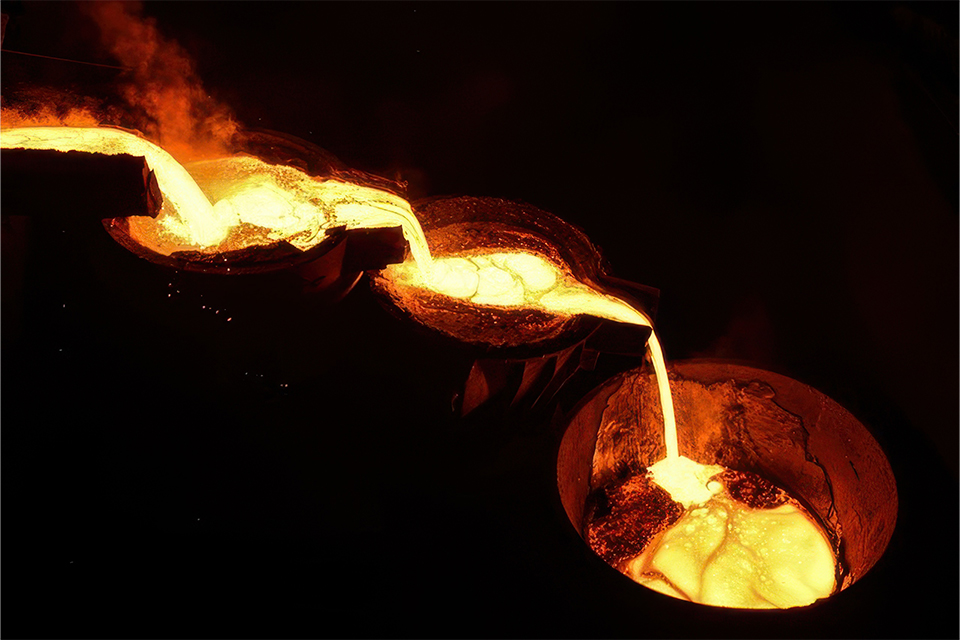Unveiling the Art and Science of Metallurgy
Metallurgy, the fascinating field of science that studies the physical and chemical behavior of metallic elements, their inter-metallic compounds, and their mixtures, which are called alloys, is integral to modern civilization. This comprehensive guide dives deep into the world of metallurgy, exploring everything from its historical roots to the cutting-edge metallurgical engineering processes that play a pivotal role in various industries today. Understanding the full spectrum of metallurgy not only enriches knowledge but also opens up numerous industrial opportunities, especially for sectors reliant on high-performance materials.
Table of Contents

What is Metallurgy?
Metallurgy is an essential science in the field of materials engineering that focuses on the study of metals and their transformation into valuable industrial products. It encompasses both the production and purification of metals from ores as well as the creation of metal alloys for specific uses. Metallurgists apply both chemical and physical methods to metals to achieve desired properties such as strength, durability, and corrosion resistance.
Why Study Metallurgy?
Metallurgical engineering is not just about understanding metal properties; it is also about innovation in the development of new materials and processes that can transform industries. From aerospace to automotive, and from electronics to construction, the applications of metallurgy are vast and impactful. Pursuing a degree in metallurgical engineering equips individuals with the knowledge to drive advancements in these critical sectors.
The Historical Progression of Metallurgy
The history of metallurgy is as old as civilization itself, with each major period of human history often defined by the metals used, from the Iron Age to the Bronze Age. Early metallurgists in Anatolia and the Hittites were pioneers, smelting copper and tin to create bronze, a discovery that revolutionized tools and weaponry.
Ancient Innovations
The ancient techniques of extracting and refining metals through smelting ores in furnaces laid the groundwork for modern metallurgical processes. These historical advancements were not only technological feats but also significant cultural and economic milestones that shaped societies.
The Impact on Early Economies
Metallurgy drove the economic structures of ancient civilizations, facilitating trade routes for precious metals and fostering technological advancements that led to enhanced tools, weapons, and artifacts.
Key Metallurgical Processes Explained
Metallurgical engineering encompasses several specialized fields, each focusing on different aspects of metals:
Physical Metallurgy
This branch focuses on the physical properties and structure of metals. It involves studying atomic arrangements, mechanical testing, and failure analysis to develop metals with improved performance for industrial applications.
Extractive Metallurgy
Extractive metallurgy involves extracting metals from their ores through various reduction processes, including smelting at high temperatures. This process is crucial for producing pure metals such as iron, copper, and aluminum.
Mineral Processing
Before extraction, ores must be treated to separate valuable minerals from their matrices. Mineral processing techniques include crushing, grinding, and various concentration steps such as flotation and magnetic separation.
Metallurgy in Modern Manufacturing
In today’s high-tech world, metallurgy is at the heart of manufacturing processes for numerous industries.
Aerospace and Automotive Applications
Metallurgical innovations have led to the development of superalloys and lightweight, durable materials used in aerospace engines and automotive powertrains. These materials withstand extreme environmental conditions, enhancing the safety and efficiency of modern transportation.
Electronics and Consumer Goods
From mobile devices to household appliances, metallurgical engineering plays a critical role in providing the materials necessary for the functionality and longevity of electronic devices and everyday products.
Educational Pathways in Metallurgical Engineering
For those interested in pursuing a career in metallurgy, obtaining an engineering degree specializing in metallurgical processes is a critical step. Educational programs typically cover a broad range of topics, including thermodynamics, materials science, and physical and extractive metallurgy, preparing graduates for diverse roles in research, development, and industry operations.
The Future of Metallurgy
The future of metallurgy is tightly linked to the advancements in technology and the increasing demand for sustainable and more efficient manufacturing processes. Innovations in materials science, coupled with a deeper understanding of metal properties, are set to revolutionize industries and lead to more sustainable practices, particularly in metal recycling and energy-efficient manufacturing.
Conclusion
Metallurgy is more than just the study of metals; it is a dynamic field that continues to evolve and impact various aspects of modern life and technology. Whether through historical contributions or modern advancements, metallurgical engineering remains a cornerstone of industrial innovation.
Key Takeaways
- Metallurgy is crucial for the production and refinement of metals and alloys, impacting numerous industries.
- The field includes physical and extractive metallurgy, each playing a vital role in material properties and production processes.
- Metallurgical engineering drives innovations in sectors such as aerospace, automotive, and electronics.
- Educational pathways in metallurgical engineering prepare students for a range of industrial and research roles.
- Future advancements in metallurgy promise further innovations in materials technology and sustainable manufacturing practices.
Frequently Asked Questions
What are the main branches of metallurgy?
The main branches include physical metallurgy, which focuses on the properties and structure of metals, and extractive metallurgy, which involves the production of metals from ores.
How does metallurgy impact the aerospace industry?
Metallurgy provides the materials technology necessary for developing superalloys used in aerospace engines, which must withstand extreme temperatures and pressures.
What educational background is required to become a metallurgist?
A degree in metallurgical engineering or a related field is typically necessary, covering topics such as materials science, chemistry, and physics.
What are some of the latest innovations in metallurgical engineering?
Recent innovations include the development of lighter, more durable alloys and techniques for more sustainable metal production and recycling.By understanding the full scope of metallurgy, industries and individuals can better harness the properties of metals to innovate and improve products and processes that shape our world. For more insights into customized NdFeB options for industrial applications, visit our Customized NdFeB Magnets page.
